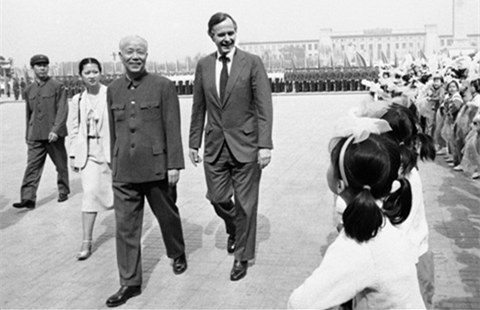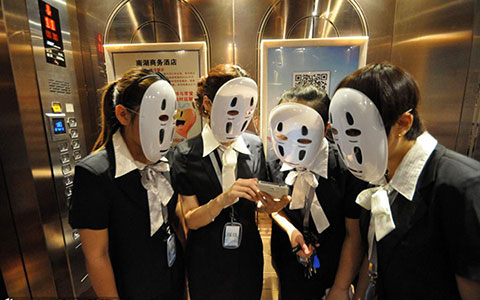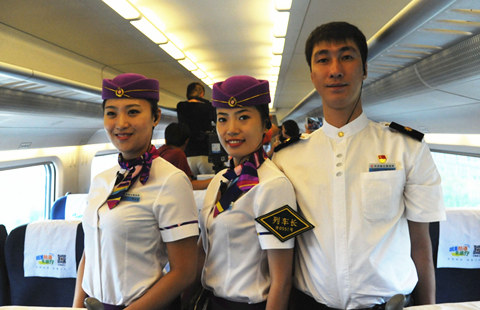Unraveling the mystique of the Chinese banquet
Updated: 2015-07-17 07:44
By Chen Yingqun(China Daily)
|
||||||||
 |
|
[Photo provided to China Daily] |
"I thought it was a joke," she recalls. "So I asked her to write an essay to explain why she wanted (the training). To my surprise, it was an extremely well-written and thoughtful three-page essay. I eventually arranged five days of classes for her when she was on a business trip to Beijing."
Since then, her students have come from a range of sectors, including legal, public relations and energy. Most have been senior executives, with some in their 20s and others in their 60s.
The school has also launched an online course for busy businesspeople to work on in their spare time.
Ho, who was born and raised in Hong Kong, says the spirit of etiquette remains the same for Chinese and Western cultures, but habits and customs are constantly changing.
With China's emergence as a global power, some Chinese customs have even been absorbed into international practice.
"More cosmopolitan Westerners are mastering chopsticks, and in fashion and design we're seeing more and more Chinese elements," she says. "Some expatriates are also studying Chinese philosophy, Confucianism and the Chinese tea ceremony."
Rebecca Li, president of Institute Sarita, says a lot of time is spent taking students to banquets and other events for practical classes.
When Institute Sarita opened, it was China's only high-end finishing school, and its courses, which can cost as much as 100,000 yuan, introduced the concept of etiquette training as a niche market. In May, the school opened a branch in Shanghai.
"Our goal is to help Chinese better understand the world, and better express themselves to the world. This is also what the Chinese government is advocating," Li says.
Businesswomen, and the wives and daughters of senior executives and entrepreneurs with business interests overseas, make up the majority of the school's Chinese customers, she says.
"As Chinese businesses are growing, they need to socialize more on an international level."
Some male entrepreneurs have started to study Western etiquette-the clients have traditionally been women-mainly those who are about to be promoted to be global team leaders or who want to take part in meetings abroad.
Finding enough teachers with the right qualities-a cosmopolitan background and familiarity with a broad range of areas, from dressing to table manners, art and languages-is the school's biggest concern right now, Ho says.
Demand in China is big, and to cultivate people's awareness of etiquette, the school offers two-day courses for 8,800 yuan and free introductory lessons.

 World's first figure 8 Ferris Wheel to be opened in Macao
World's first figure 8 Ferris Wheel to be opened in Macao
 Heavy downpour hits SW China
Heavy downpour hits SW China
 Wan Li: A life in photos
Wan Li: A life in photos
 22 World Heritage Sites in China along the Silk Road
22 World Heritage Sites in China along the Silk Road
 A day of masks
A day of masks
 France celebrates Bastille Day
France celebrates Bastille Day
 China's northernmost high-speed railway enters trial operation
China's northernmost high-speed railway enters trial operation
 Eight industries the shared economy will transform
Eight industries the shared economy will transform
Most Viewed
Editor's Picks

|

|

|

|

|

|
Today's Top News
China's GDP grows by 7%
Japan passes disputed bill
Petcoke called key in pollution fight
Service sector bolsters China’s GDP despite stock woes
Bush, Clinton dominate early presidential fundraising
Tiny Pluto sports big mountains, New Horizons finds
Greek parliament approves debt deal and first reforms
China's Internet giants reprimanded over obscene clip
US Weekly

|

|






